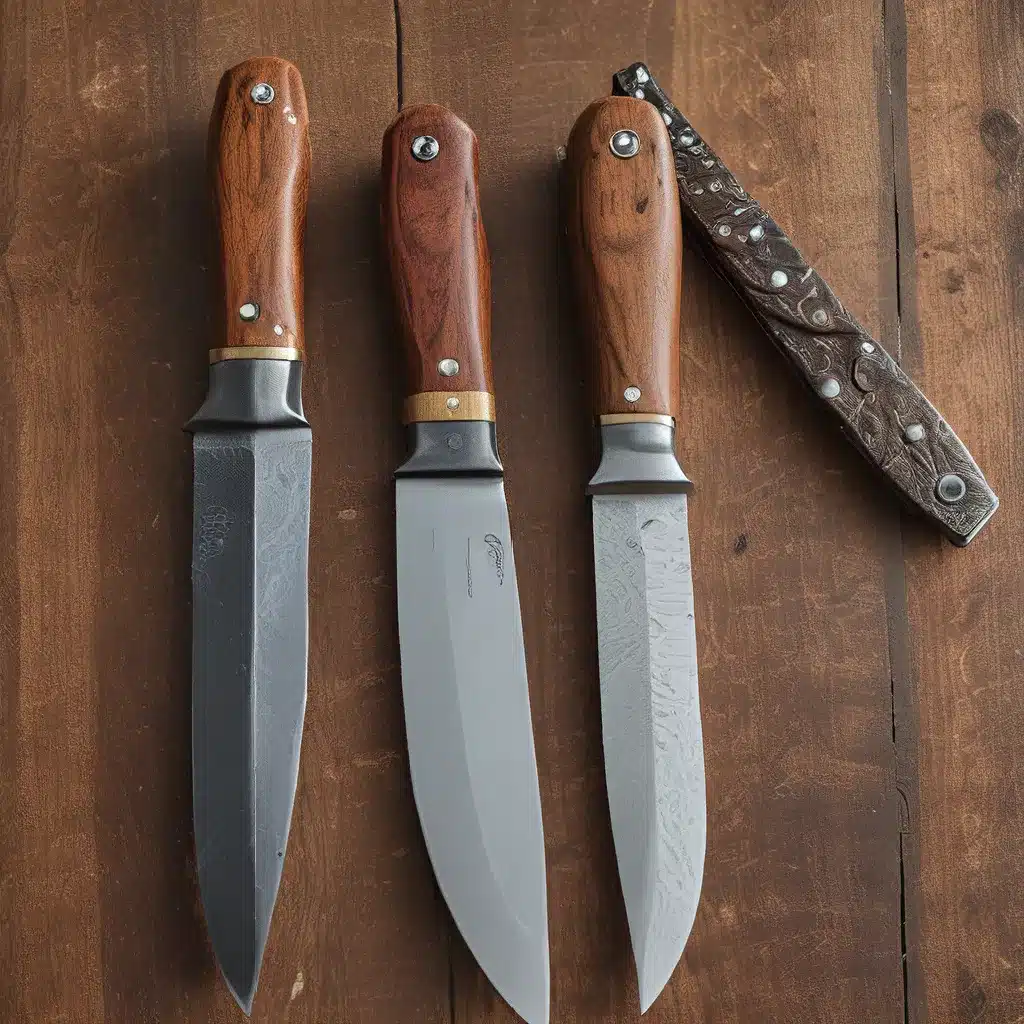
Ah, the humble knife – a tool so ubiquitous, yet so often taken for granted. These silent companions of ours deserve far more attention than we typically give them. After all, how many of us really devote the time and care necessary to ensure our knives stay in tip-top shape for years to come?
Well, my friends, it’s time to change that. Get ready to become a knife babysitter extraordinaire as we dive into the art of nurturing your blades for a lifetime of use. Trust me, your culinary adventures (and your wallet) will thank you.
Sharpen Your Skills, Sharpen Your Knives
Let’s start with the basics – sharpening. This is perhaps the single most important aspect of knife maintenance, and yet it’s also one of the most neglected. How many of us have knives languishing in the drawer, dull as a doornail, because we just can’t be bothered to sharpen them?
Well, let me tell you, a sharp knife is a joy to use. It glides through ingredients with effortless precision, making meal prep a breeze. And the best part? Properly sharpened knives are actually safer to use than their dull counterparts. When a blade is sharp, it requires less force to cut, reducing the risk of slips and accidents.
Now, I know what you’re thinking – “But sharpening is such a hassle!” – and you’re not wrong. It can be a bit of a learning curve, especially if you’re new to the process. But trust me, it’s a skill worth mastering. And the good news is, there are plenty of resources out there to help you get started, from instructional videos to handy sharpening tools.
Herman Knives, for example, offers a variety of sharpening options, from manual sharpeners to professional-grade electric models. And the best part? They provide detailed guides on how to use them, so you can sharpen your blades like a pro in no time.
Cleaning and Caring for Your Knives
But sharpening is just the tip of the iceberg when it comes to knife maintenance. Proper cleaning and storage are also essential for keeping your blades in top condition.
After each use, be sure to give your knives a thorough cleaning. Wash them by hand with warm, soapy water, and be sure to dry them completely before putting them away. Avoid the dishwasher at all costs – the harsh detergents and high heat can wreak havoc on your knife’s blade and handle.
And when it comes to storage, invest in a quality knife block or magnetic strip. These not only keep your knives within easy reach but also protect the blades from getting dinged or scratched in the drawer. Plus, they add a touch of style to your kitchen.
Oiling and Sheathing for Long-Term Protection
But the care doesn’t stop there. To ensure your knives stay in tip-top shape for years to come, it’s important to oil the blades every so often. This helps prevent corrosion and maintain that smooth, effortless cutting action.
Now, I know what you’re thinking – “Oil? On my knives? Isn’t that going to make them all greasy and gross?” – but fear not, my friends. The right oil can actually enhance the look and feel of your blades. Just a few drops of a high-quality mineral oil or food-safe oil can work wonders.
And when it comes to storage, don’t forget to invest in protective sheaths for your most valuable knives. These handy little covers not only keep the blades safe but also prevent them from getting nicked or dulled in the drawer.
The Importance of Proper Handling
But perhaps the most crucial aspect of knife care is proper handling. After all, these sharp tools can be downright dangerous if misused.
Always pick up a knife by the blade, not the handle, and be sure to keep your fingers clear of the edge when cutting. And when you’re done using a knife, always place it in a safe, secure location, whether it’s a knife block, a magnetic strip, or even just a designated spot on the counter.
And let’s not forget about the importance of cutting on the right surface. Avoid glass, ceramic, or stone cutting boards at all costs – these materials can quickly dull your blades. Instead, opt for a sturdy wooden or plastic cutting board that’s gentle on your knives.
Nurturing Your Knives, Nurturing Your Passion
At the end of the day, caring for your knives is about more than just prolonging their lifespan. It’s about cultivating a deeper appreciation for these essential tools and the art of cooking itself.
Think about it – when you take the time to sharpen, clean, and maintain your blades, you’re not just ensuring they’ll last for years to come. You’re also connecting with the history and craftsmanship that goes into every well-made knife. You’re celebrating the joy of preparing meals and the countless hours of practice and experimentation that have led you to this point.
So, the next time you reach for your favorite chef’s knife, take a moment to appreciate the journey it’s been on. Think about the meals it’s helped you create, the memories it’s been a part of, and the countless ways it’s enriched your life.
And who knows? Maybe that newfound appreciation will even inspire you to try your hand at a few more culinary adventures. After all, with a trusty, well-cared-for knife by your side, the possibilities are endless.


